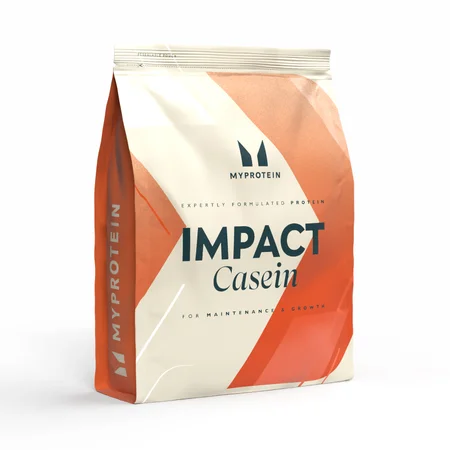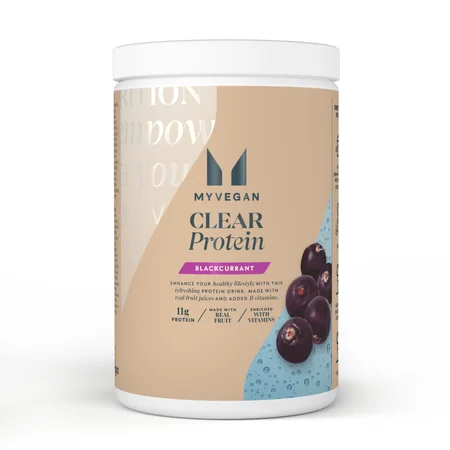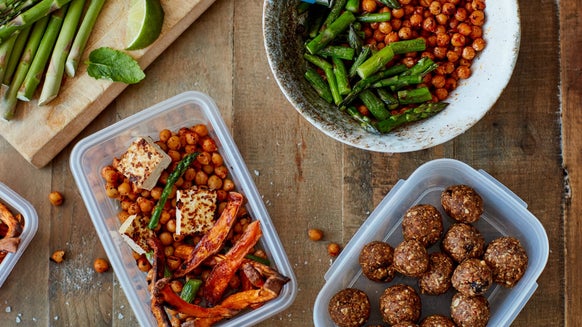How Many Protein Shakes A Day is Healthy?
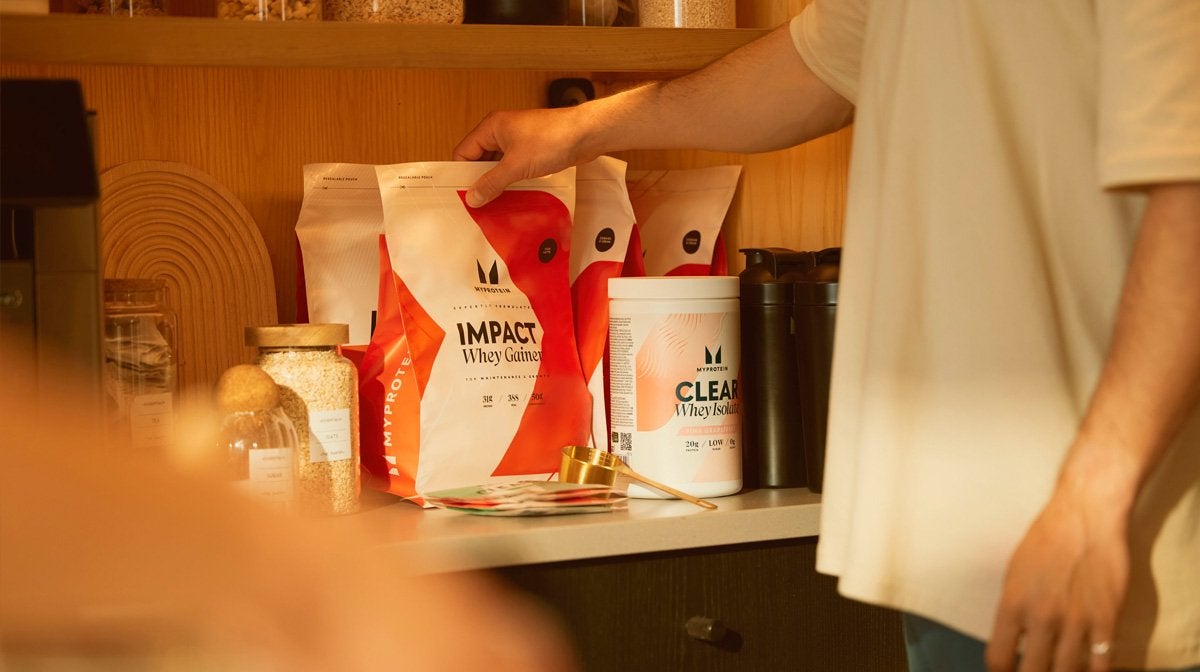

Protein is one of the three macronutrients that we require daily for energy and to feel on top form every day. But how many protein shakes a day can you have, and how much protein is too much? This article breaks down the way to optimise your protein intake to help you meet your body’s needs and your training goals.
There are many reasons why you might choose to drink protein shakes — building muscle, losing weight, gaining weight, or recovering from an injury or illness. Protein shakes can be helpful for all of these reasons, based on what you include in them and how often you have them.
Before you take a scoop and start shaking, you’ll want to know how many protein shakes are best for you, you need to think about your goals for muscle growth and repair and how they fit into your daily schedule.
- Why do we need protein?
- How much protein is needed per day?
- How much protein can our bodies absorb per dose?
- How many protein shakes a day should you have?
- Is too much protein dangerous?
- FAQs
Why do we need protein?
Every day and throughout our lives, our muscles are always in a state of flux, as they’re partially breaking down (this is known as muscle protein breakdown) and partially building back up (known as muscle protein synthesis).
Weightlifting (or other resistance-based exercise) and consuming protein are two common ways to increase muscle protein synthesis.1 When you’re trying to lose weight and maintain a calorie deficit, it’s important to have enough protein in your diet to prevent muscle protein breakdown.2
Protein also slows down our digestion, making us feel full and satisfied, which can help with weight loss. It’s great for snackers and 3pm hunger pangs too, keeping you feeling satiated.
As we age, we tend to lose lean muscle mass, making adequate protein intake important in the elderly population as well.4

Best Whey Protein | The Difference Between Impact Whey & Impact Whey Isolate?
It's a battle of the best.
How much protein is needed per day?
When thinking about how many protein shakes a day to have, it’s best to consider your total protein needs for the day.
- Healthy individuals need about 0.8 grams of protein per kilogram of body weight
Athletes require up to 1.3-1.8 grams per kilogram of body weight, based on the frequency and intensity of training.2
The lower end of this range (1.3g) is usually more appropriate for endurance sports, like distance running, cycling, tennis or football. The higher end of this range is for more strength-based workouts, like powerlifting, bodybuilding, functional fitness or rugby.
Using this simple formula can help you determine how much total protein you should consume daily, both from food sources and your protein shake(s). For example, if you weigh 68kg and exercise moderately most days of the week, you would multiply your weight by 1.3:
If you eat only three meals per day, that would require each meal to contain about 29 grams of protein (about a 125g piece of chicken). If you don’t eat that much protein in each meal, a protein shake could easily help make up what you’re missing.

However, if you’re a 115kg athlete with an intense 2-a-day weight training schedule, you might need upwards of 200 grams of protein:
This high amount is harder to consume from food alone — unless you want to eat 7 servings of chicken each day... which would get boring pretty quickly. This size and type of athlete might benefit from two or three shakes a day to help meet that total. The next consideration is how much protein you should consume at one time.

Macro Calculator | How To Calculate Your Macros For Flexible Dieting & IIFYM
Use our calculator to work out your macros.
How Much Protein Can Our Bodies Absorb Per Dose?
Due to the nature of the constant breakdown and synthesis of muscle tissue, it’s a common rule to break your protein intake into 3-4 similar sized doses per day — whether these are meals or shakes.2
However, too many calories from any source will lead to weight gain, so there’s an upper limit of how much protein is beneficial. Based on what else is in your meal or protein shake (milk, water, fruit, fat sources, etc.), and what kind of protein you choose (whey, soy, casein, etc.), you may digest and absorb the protein at a different rate.

Common Protein Mistake That Limits Gains | Nutritionist Explains
Richie is back with the facts. And this is a big one.
How Many Protein Shakes a Day Should You Have?
No matter whether you have 2 protein shakes a day or 3 protein shakes a day, it’s the daily amount of the protein macronutrient itself that’s important for your progress.
For exercising individuals, optimal daily protein intakes range between 1.4-2.0g/kg with the exact figure depending upon your goal.3 You may be able to get all of this from your diet, however, protein shakes provide a convenient way to ensure you are getting the high levels of the various amino acids required for muscle growth and recovery.
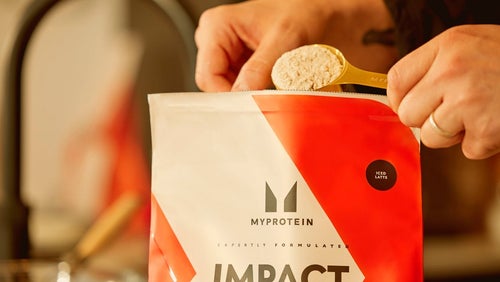
Whey Protein Timing | The Best Time To Take Protein Shakes
We reckon any time is a good time, but here's what the experts say.
Protein timing is also key, and it can vary depending on your goals...
Is Too Much Protein Dangerous?
In short, there isn’t a clear answer as to the maximum amount that’s beneficial per dose. Recommendations are based on what your goals are. Common practice is to consume about 20-25 grams of high-quality protein at one time to maximise muscle protein synthesis.4
However, larger doses of 30-45 grams were shown to have the greatest impact on lean mass and strength.5 When considering prevention of muscle loss due to aging, another study showed that 25-30 grams was optimal.6 Overall, the recommendations range between 20-45 grams per dose.
When considering how many protein shakes a day to have, think about your total daily protein requirement and how many grams there are in a serving of your protein powder.

If you have a high protein lunch and dinner, one shake in the morning (as part of your breakfast or after) may be enough to reach your daily goal. If you work out in the afternoon and have a long wait until dinner, it might be best to have a second shake then, to optimise muscle building after your workout.
Protein shakes can also play an important role in the diets of vegan and vegetarian athletes, who don’t consume animal protein. Check out our vegan/vegetarian protein range here.
While you might read about negative side effects from high-protein diets, there have been no studies proving any harm in healthy individuals from protein.7 It’s still important to choose high quality carbohydrates, healthy fats, and a variety of vitamins and minerals for optimal daily nutrition.

Protein Fact vs. Fiction | Nutritionist Debunks The Biggest Protein Myths
"Your body can only absorb so much protein", think again.
FAQs
How much protein do I need in a day?
Healthy individuals should aim for a minimum 0.8g of protein per kilogram of bodyweight. Athletes should aim for 1.4-2.0g per kilogram of bodyweight.
Why do we need protein?
Our muscles are in a state of breaking down and partially building back up (muscle protein synthesis). Ingesting adequate protein prevents muscle protein breakdown and increases muscle protein synthesis.
How many doses of protein should I take per day?
It is common to break your protein intake into 3-4 similar sized doses to be taken throughout the day.
Is too much protein dangerous?
No. There have been no studies which prove any harm in healthy individuals from protein.

Take Home Message
To decide how many protein shakes a day is best for you, consider your training schedule, your types of workouts, and your goals — whether you’re trying to build muscle mass or lose weight.
Then decide how you want to split your daily protein intake (typically into 3 or 4 doses per day) and figure out how much of your protein powder you’ll need to consume alongside the protein from the other foods in your diet in order to meet your goals.
Keep in mind that other ingredients can increase the protein in your shake — adding a cup of milk can also boost protein in your shake by 8 grams, or half a cup of Greek yogurt can add up to 18 more grams. (If you’re vegan, try using soya yoghurt & soy milk to boost your protein intake). Get creative to take full advantage of the benefits of protein in your diet and in your post workout protein shakes.
READ THESE NEXT:

Nutritionist's Lunch Box Ideas To Stay On Top Of Your Macros
Long live the lunch box.

These Are The Best Foods For Cutting
And how to split out your macros.

Liam is a certified sport nutritionist with the International Society of Sport Nutrition and is enrolled on the British Dietetics Association’s Sport and Exercise Nutrition register. He has a Bachelor’s of Science in Sport and Exercise Science and is graduate of the ISSN Diploma in Applied Sport and Exercise Nutrition.
Liam is an experienced personal trainer, helping clients reach their health and fitness goals with practical, evidence informed exercise and nutrition advice. In his spare time Liam has competed in numerous powerlifting competitions and enjoys hill walking, football and expanding his recipe repertoire in the kitchen.Find out more about Liam's experience here.
- Morton, R. W., McGlory, C., & Phillips, S. M. (2015). Nutritional interventions to augment resistance training-induced skeletal muscle hypertrophy. Frontiers in physiology, 6, 245.
- Phillips, S. M., & Van Loon, L. J. (2011). Dietary protein for athletes: from requirements to optimum adaptation. Journal of sports sciences, 29(sup1), S29-S38.
- Schoenfeld, B. J., & Aragon, A. A. (2018). How much protein can the body use in a single meal for muscle-building? Implications for daily protein distribution. Journal of the International Society of Sports Nutrition, 15(1), 10.
- Loenneke, J. P., Loprinzi, P. D., Murphy, C. H., & Phillips, S. M. (2016). Per meal dose and frequency of protein consumption is associated with lean mass and muscle performance. Clinical nutrition, 35(6), 1506-1511.
- Paddon-Jones, D., Campbell, W. W., Jacques, P. F., Kritchevsky, S. B., Moore, L. L., Rodriguez, N. R., & van Loon, L. J. (2015). Protein and healthy aging. The American journal of clinical nutrition, 101(6), 1339S-1345S.
- Samal, J. R. K., & Samal, I. R. (2018). Protein Supplements: Pros and Cons. Journal of dietary supplements, 15(3), 365-371.
